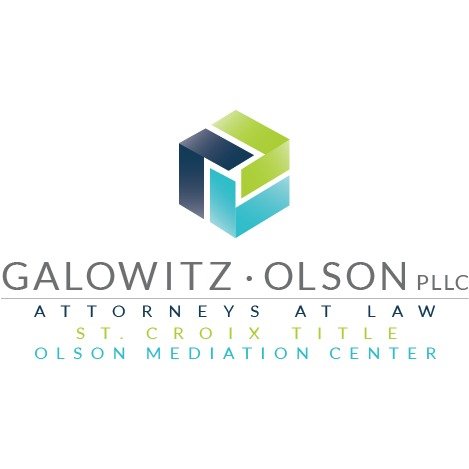Best Elder Law Lawyers in Minnesota
Share your needs with us, get contacted by law firms.
Free. Takes 2 min.
Or refine your search by selecting a city:
List of the best lawyers in Minnesota, United States
United States Elder Law Legal Questions answered by Lawyers
Browse our 2 legal questions about Elder Law in United States and read the lawyer answers, or ask your own questions for free.
- Hi, I like to get the information about my deceased sister government pension in Sind Govt.
- I am living in usa and my sister was the govt employee in pakistan about 25 to 27 years. she was unmarried and my parents also passed. I like to know who will the benifits after her death. She passed during her job. I really appreciate it if you guide... Read more →
-
Lawyer answer by A A Abdullahi Law Firm
Hello, Her next of kin will be you and so you shall be the one to receive the benefits and her properties. You can contact us vfor assistance on the documentation and procession
Read full answer - How to protect property from squatters law
- Deed in my mom's name. She died 18 years ago. Son is named as administrator but not as owner. We live in USA so let Non relative live there for 45-50 year but had no formal contract. Let him live there free as long as he paid utilities and taxes.... Read more →
-
Lawyer answer by M BILAL ADVOCATES, CORPORATE & TAX CONSULTANTS
After completing probate to establish yourself as the legal heir, you can transfer the property title to your name and then grant them permission to reside there through a formal agreement. It is worthy to note that you can do...
Read full answer
About Elder Law in Minnesota, United States
Elder law is a specialized area of legal practice focused on the needs of older adults and their families. In Minnesota, elder law encompasses a wide range of issues, including guardianship, healthcare planning, estate planning, long-term care arrangements, protection from elder abuse, and more. Lawyers in this field are experienced in helping seniors and their loved ones navigate the complex legal and financial decisions that can arise with aging. Minnesota-specific elder law is influenced by both state statutes and federal regulations, making it important to understand local legal nuances.
Why You May Need a Lawyer
Many people seek legal help in elder law for the following common situations:
- Planning for long-term care and understanding options like nursing home care, assisted living, or in-home care
- Qualifying for Medicaid or Medical Assistance in Minnesota
- Drafting or updating wills, trusts, and other estate planning documents
- Establishing powers of attorney or healthcare directives
- Seeking guardianship or conservatorship for an incapacitated adult
- Protecting assets from misuse or financial exploitation
- Addressing and reporting elder abuse or neglect
- Managing issues related to Social Security, Veterans benefits, or retirement planning
- Resolving disputes among family members regarding elder care or inheritance
A qualified elder law attorney can provide valuable guidance, ensure compliance with state laws, and offer peace of mind during challenging times.
Local Laws Overview
Elder law in Minnesota is governed by a combination of state laws, federal laws, and local court procedures. Key aspects include:
- Medical Assistance (Minnesota Medicaid): Minnesota's program is governed by strict eligibility rules that affect many seniors seeking help with nursing home or long-term care costs. Asset and income limits apply, and there are specific rules about transferring property that can affect eligibility.
- Guardianship and Conservatorship: Minnesota courts can appoint a guardian or conservator for adults who lack the capacity to make decisions. Courts closely supervise these cases to prevent abuse and ensure the individual's best interests are protected.
- Healthcare Directives: Minnesota law allows individuals to create advance directives that state their medical care preferences and appoint someone to make healthcare decisions if they become incapacitated.
- Elder Abuse Protection: The state defines and enforces laws against various forms of elder abuse, including financial exploitation, neglect, and physical abuse. Mandatory reporting laws require certain professionals to report suspected abuse.
- Estate and Probate Laws: Minnesota has specific procedures for probate and the administration of estates. Understanding these rules is essential for proper transfer of assets after death and minimizing disputes.
- Homestead and Spousal Rights: Minnesota gives surviving spouses certain rights to the family home and other assets, regardless of will or trust provisions.
Frequently Asked Questions
What is elder law and who does it serve?
Elder law is a legal practice area focused on issues affecting older adults and their families, including estate planning, powers of attorney, guardianship, long-term care, and protection from abuse or exploitation.
When should I consult an elder law attorney in Minnesota?
You should consult an elder law attorney if you or a loved one are planning for long-term care, facing incapacity, require estate planning, or are dealing with elder abuse, guardianship, or Medicaid eligibility questions.
How does Medicaid (Medical Assistance) work for long-term care in Minnesota?
Medicaid, called Medical Assistance in Minnesota, helps cover long-term care costs for eligible seniors. Eligibility is based on income and assets, and improper transfers of property may result in penalties. Planning ahead with legal advice is important.
What is the difference between guardianship and conservatorship?
A guardian manages personal and healthcare decisions for someone unable to do so, while a conservator handles financial matters. Both require court appointment and supervision in Minnesota.
How can I protect a senior from financial exploitation?
Legal tools like powers of attorney, trusts, and guardianship can protect against financial exploitation. Minnesota also has laws requiring certain professionals to report suspected abuse. Contacting Adult Protective Services is recommended if you suspect exploitation.
What is a healthcare directive and why is it important?
A healthcare directive allows individuals to state their medical preferences and appoint someone to make healthcare decisions if they are unable. Minnesota law recognizes these documents, which can prevent confusion and conflict during medical emergencies.
How do I contest a will or trust in Minnesota?
Contesting a will or trust usually involves filing a claim in probate court, claiming issues like lack of capacity, undue influence, or fraud. There are strict timelines and procedures, so seeking legal help is crucial.
Does Minnesota have inheritance or estate taxes?
Minnesota has a state estate tax for estates exceeding a certain value, though there is no inheritance tax. Tax thresholds can change, so discussing this with an elder law attorney is recommended.
How do I report suspected elder abuse or neglect in Minnesota?
You can report suspected abuse or neglect by contacting the Minnesota Adult Abuse Reporting Center. Certain professionals are required to report by law.
Can I handle elder law issues myself or should I hire a lawyer?
While some matters can be handled without legal representation, elder law involves complex state and federal regulations. A qualified attorney can help avoid costly mistakes and ensure your rights or those of your loved ones are fully protected.
Additional Resources
There are several resources available in Minnesota to support seniors and their families:
- Minnesota Board on Aging
- Minnesota Adult Abuse Reporting Center
- Senior LinkAge Line
- Minnesota State Bar Association - Elder Law Section
- Legal Aid organizations, such as Mid-Minnesota Legal Aid
- County Social Services Offices
These organizations can provide information, assistance, and referrals to qualified elder law attorneys in your area.
Next Steps
If you or a loved one needs legal assistance in the field of elder law in Minnesota, here are practical steps to consider:
- Identify your specific legal concerns, such as estate planning, long-term care, or protection from abuse
- Gather relevant documents, including wills, powers of attorney, financial records, and any correspondence
- Contact one of the resources listed above for information or referrals
- Schedule consultations with qualified elder law attorneys to discuss your needs
- Prepare questions in advance to make the most of your consultation
- Consider your options and follow your attorney’s guidance to protect your loved one's or your own interests
Navigating elder law issues can be complex, but you do not have to handle them alone. Taking timely action and seeking professional guidance can help ensure the best possible outcomes for you and your family.
Lawzana helps you find the best lawyers and law firms in Minnesota through a curated and pre-screened list of qualified legal professionals. Our platform offers rankings and detailed profiles of attorneys and law firms, allowing you to compare based on practice areas, including Elder Law, experience, and client feedback.
Each profile includes a description of the firm's areas of practice, client reviews, team members and partners, year of establishment, spoken languages, office locations, contact information, social media presence, and any published articles or resources. Most firms on our platform speak English and are experienced in both local and international legal matters.
Get a quote from top-rated law firms in Minnesota, United States — quickly, securely, and without unnecessary hassle.
Disclaimer:
The information provided on this page is for general informational purposes only and does not constitute legal advice. While we strive to ensure the accuracy and relevance of the content, legal information may change over time, and interpretations of the law can vary. You should always consult with a qualified legal professional for advice specific to your situation.
We disclaim all liability for actions taken or not taken based on the content of this page. If you believe any information is incorrect or outdated, please contact us, and we will review and update it where appropriate.
Browse elder law law firms by city in Minnesota
Refine your search by selecting a city.












